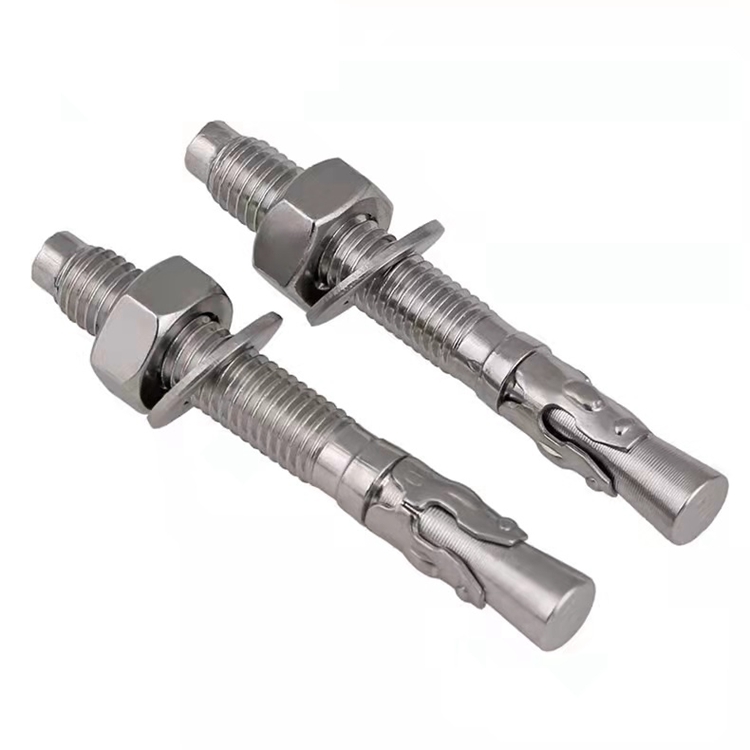Shoulder Bolt Manufacturing Facility Overview and Production Insights
Nov . 10, 2024 03:02 Back to list
Shoulder Bolt Manufacturing Facility Overview and Production Insights
The Evolution and Significance of Shoulder Bolts in Manufacturing
Shoulder bolts, often referred to as shoulder screws, are a critical component in various engineering and manufacturing applications. Their unique design, characterized by a cylindrical shoulder and a threaded end, distinguishes them from standard fasteners, providing versatility and functionality in assemblies. The production of shoulder bolts takes place in specialized factories that adhere to stringent quality standards to meet the diverse needs of industries ranging from automotive to aerospace.
The design of shoulder bolts serves multiple purposes. The shoulder provides a bearing surface which allows for the precise alignment of parts, acting as a pivot for rotating components in machinery. This feature makes shoulder bolts invaluable in applications such as hinges, levers, and clamping devices. The threaded portion enables secure fastening, ensuring that components remain tightly affixed during operation, which is crucial for maintaining structural integrity and safety.
The Evolution and Significance of Shoulder Bolts in Manufacturing
Quality control is paramount in the production of shoulder bolts. Factories implement rigorous testing methods to ensure that each bolt meets specific criteria for strength, durability, and dimensional accuracy. Non-destructive testing techniques, such as ultrasonic testing and magnetic particle inspection, are used to detect any internal or surface flaws that could compromise the performance of the bolts. Compliance with industry standards, such as ASTM and ISO certifications, further assures clients that the shoulder bolts produced are of the highest quality.
sholder bolts factory

The demand for shoulder bolts continues to grow as industries evolve and innovate. The automotive sector, for instance, utilizes shoulder bolts in assembling various components such as suspension systems and engine mounts, where durability and precision are critical. Similarly, the aerospace industry relies on shoulder bolts in aircraft assemblies to ensure safe and efficient operation under extreme conditions.
Moreover, the rise of automation in manufacturing has led to new applications for shoulder bolts. In robotic systems, they serve as pivot points in joints and actuators, facilitating smooth movements and enhancing the performance of robotic arms. The trend towards lightweight materials in manufacturing has also influenced shoulder bolt design, with manufacturers exploring new alloys and composites to reduce weight without sacrificing strength.
Sustainability is another critical factor driving innovation in shoulder bolt production. Many factories are now focused on minimizing waste and energy consumption by adopting eco-friendly practices. The use of recycled materials for manufacturing shoulder bolts not only reduces the environmental footprint but also contributes to the circular economy.
In conclusion, shoulder bolts are more than mere fasteners; they are essential components that play a significant role in mechanical assemblies across various industries. The commitment to quality and innovation in shoulder bolt factories ensures that these critical components meet the ever-evolving demands of modern manufacturing. As industries move toward greater efficiency and sustainability, the role of shoulder bolts in facilitating innovation will only become more pronounced, reaffirming their importance in the contemporary manufacturing landscape. With advancements in technology and materials, the future of shoulder bolts looks promising, poised to support the next generation of engineering challenges.
Latest news
-
High-Quality Panel Stud Bolt Reliable Panel Stud Bolt Factory & Suppliers
NewsJul.08,2025
-
High-Precision Fine Thread Locknuts Manufacturer & Supplier Custom Solutions
NewsJul.08,2025
-
PH Imperial Stud Bolt – High Strength Fasteners from Leading Supplier & Factory
NewsJul.07,2025
-
High-Quality Allen Wrench Bolts Leading Factory, Company & Suppliers
NewsJul.07,2025
-
Wholesale Ball Stud Bolt - High Quality Supplier & Factory Price Reliable Wholesale Ball Stud Bolt Company
NewsJul.06,2025
-
High-Strength Alloy Bolts Manufacturer & Supplier Quality Alloy Fasteners Factory
NewsJul.06,2025
